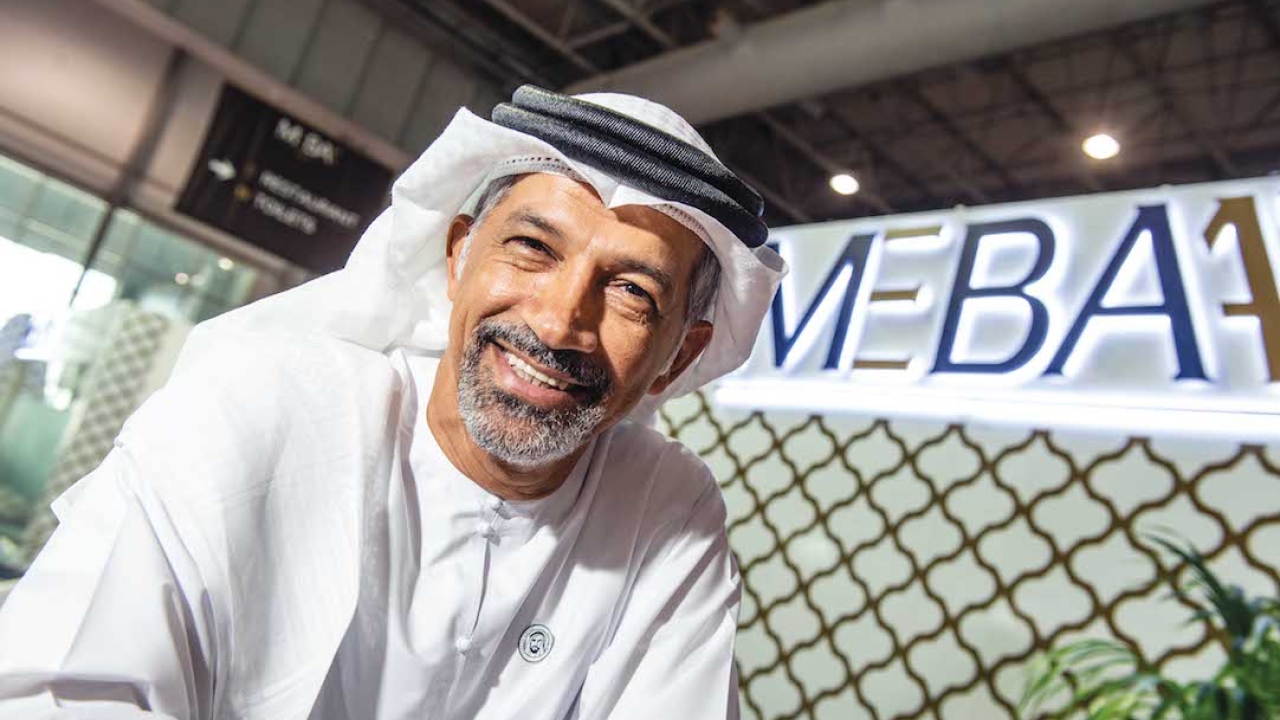Business aviation is growing – but it’s also under attack
The last two years have been very successful for business aviation worldwide, and particularly the Middle East.

Ali Alnaqbi: “Let us be the leaders, not the followers.” Picture: Billypix.
According to business intelligence consultancy, WingX, in October the Middle East was still seeing strong growth on what was already a record-breaking 2021.
The global private jet market is projected to reach $39.84 billion in 2025 from an estimated $25.87 billion in 2021.
Within the Middle East, the UAE is leading the boom, with the private jet market in the emirates predicted to grow from about 150 private aircraft currently to 250 by 2025.
While celebrating this regional success, at the recent Corporate Jet Investor (CJI) Dubai event, Ali Alnaqbi, founding and executive chairman of MEBAA, also issued a word of caution, suggesting that global business aviation was under attack from a number of sides.
He said: “VIPs, whether a business leader or a celebrity, are being monitored by the media when flying, so we are under scrutiny. A few weeks back, a minister in France went to the media and said, ‘let’s ban business aviation’.”
Alnaqbi added that, while this attack is not yet evident in the GCC region, it is happening in other parts of the world and he urged operators in the Middle East to work together in a number of ways. He said: “One of the very important aspects is what do we give back? If we don’t give back anything to the communities in the countries in which we are working, questions will be raised one day.
“We need to give back some charity flights, and humanitarian efforts. There is a way to establish that, and MEBAA is there to help you achieve such things.”
Alnaqbi believes that the industry should be proactive on environmental sustainability. He said: “People say that we contribute to CO2. All the aviation in the world put together contributes 2%. What is the business aviation contribution to this 2%? 0.04%.
“But we need to think about sustainability; we need to think about sustainable aviation fuel, (SAF). We need to find a way to invest in SAF and we need to bring it to our region.
“We don’t have to be followers; we don’t have to wait until we go to Europe or the United States to use SAF in our aircraft. We need to bring it here and to start using it, because this is the future.
“Net zero emissions is going to be implemented on us by 2050. That is the blink of an eye. We must work now to bring SAF into the region before we come under attack. Let us be the leaders, not the followers.”
Another area of focus for Middle East operators is illegal charter. Alnaqbi feels that it has been forgotten, with the booming market, but it must be addressed. He said: “We forget about the grey market, but it is a reality, and it is happening. One day they will come and say enough is enough, because Europe is checking on us; America is checking on us. Be aware of it. Your association is trying to help.
“We put a lot of effort here in the UAE, we are very close with the authorities, we work with them on a daily basis and have managed to reduce it. We have not stopped it altogether, nowhere has it been completely stopped. We may never kill it, but I am sure we can reduce it.”
He asked industry players to report to the authorities if they see grey activities.
He concluded: “The pandemic has taught us that we are a unique industry. We were the only ones delivering goods and taking people to where they needed to be when all the countries’ borders were closed. We managed to change the perspective of business aviation. We are in a very good position. Our market is healthy. But to continue achieving that we need to work together, to share information, and put our hands together. That is what I am calling for.”
Stay up to date
Subscribe to the free Times Aerospace newsletter and receive the latest content every week. We'll never share your email address.

